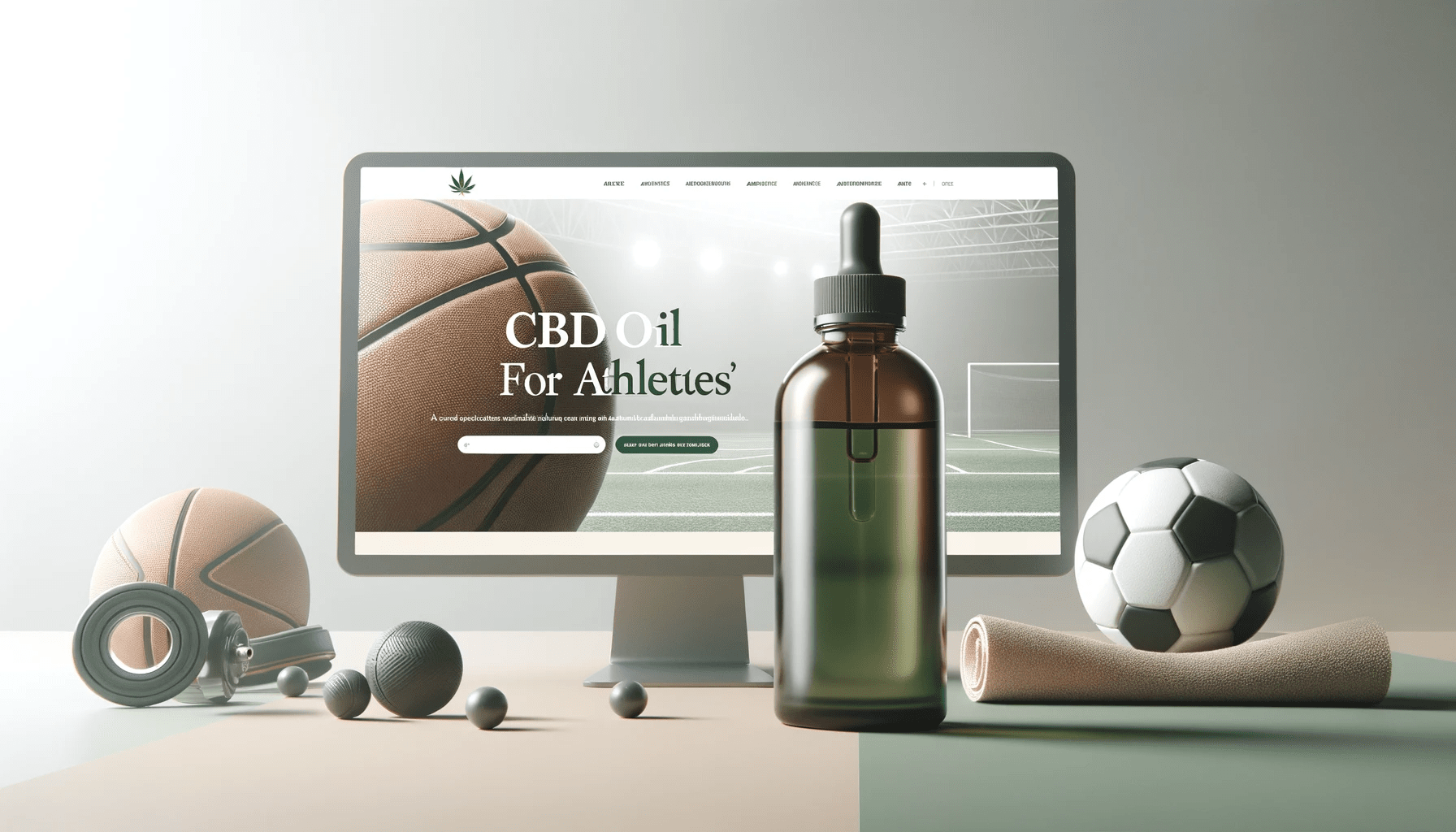Introduction
Athletes are always at the forefront of wellness trends that promise to enhance performance and accelerate recovery. Among the most discussed in recent years is CBD oil, a non-psychoactive extract from the cannabis plant. Unlike its more infamous counterpart, THC, CBD does not impair cognitive function or induce a ‘high’, making it a substance of interest for athletes who seek the benefits of cannabis without its mind-altering effects. This article delves into the potential of CBD oil for athletes, its benefits and side effects, safety and dosage guidelines, and its status in doping tests.
How CBD Works for Athletes

CBD interacts with the body’s endocannabinoid system (ECS), which plays a role in regulating a variety of functions including pain, inflammation, mood, and sleep. The ECS consists of cannabinoid receptors (CB1 and CB2), endocannabinoids, and enzymes that help break down cannabinoids. When CBD enters the body, it is thought to enhance the ECS by binding to these receptors, though not in the same way as THC. This binding action is what researchers believe may produce pain-relieving and anti-inflammatory effects that could be beneficial for athletes.
Benefits of CBD for Athletic Performance
- Pain Management: CBD is renowned for its analgesic properties, which could be beneficial in managing exercise-induced pain and soreness.
- Inflammation Reduction: CBD may reduce the inflammation associated with intense training, potentially leading to faster recovery times.
- Stress and Anxiety Relief: Competing at high levels often comes with stress and anxiety. CBD has been shown to have anxiolytic effects which could help athletes stay calm and focused.
- Improved Sleep Quality: Quality sleep is crucial for recovery, and CBD may help athletes achieve a more restful sleep pattern.
- Neuroprotective Properties: There is emerging evidence that CBD may have neuroprotective effects, which could be beneficial for sports that carry a risk of head trauma.
Side Effects and Safety Concerns
While CBD is generally considered safe, it’s not without potential side effects. Some individuals may experience fatigue, changes in appetite, or gastrointestinal discomfort. It’s also important to consider the purity of the product, as some CBD oils may contain traces of THC or other contaminants.
Safety and Dosage
The safety of CBD is generally upheld, with the World Health Organization noting its good safety profile. However, potential side effects like drowsiness, dry mouth, or gastrointestinal issues can occur. Athletes should begin with a low dosage and monitor effects, gradually increasing to find an optimal dose. Importantly, athletes must ensure product purity to avoid THC contamination, which is critical given the strict anti-doping regulations in sports. Consulting with a healthcare provider before starting CBD, especially for those taking other medications, is crucial to mitigate risks and ensure safe use.
CBD and Doping Tests
CBD, as a singular compound, is not flagged by the World Anti-Doping Agency (WADA) as a banned substance, making it an accessible option for athletes looking for recovery aids. However, the caveat lies in the trace amounts of THC that may be present in CBD products. THC is prohibited in competition; even minimal amounts can result in a positive doping test, leading to potential career implications for athletes.
To mitigate this risk, athletes must select CBD products that have undergone rigorous third-party testing, ensuring that they contain no THC. This careful approach to product selection is essential not only for adhering to regulations but also for maintaining the integrity of an athlete’s career, allowing them to reap the benefits of CBD without the fear of unintentional doping violations.
Conclusion
For athletes intrigued by the therapeutic prospects of CBD, the compound offers a promising alternative to traditional methods for pain relief, inflammation, stress management, and sleep improvement. However, due diligence is necessary to ensure compliance with sports regulations, and a careful approach to dosing is essential. As research continues to evolve, CBD may become a staple in the athlete’s toolkit for peak performance and optimal recovery.

